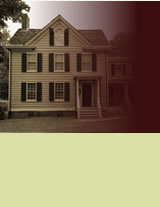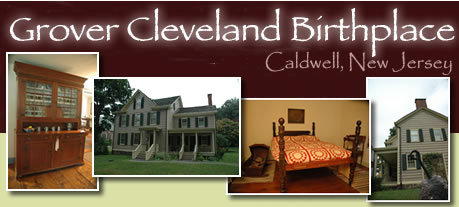| Cleveland remained in Buffalo where he practiced law and held the posts of Election Ward Supervisor, Assistant District attorney, Sheriff of Erie County, and finally mayor. His political fortunes continued to climb as he rose from Mayor of buffalo (1882), to governor of New York (1883), to president of the United States (1885), in a mere three and a half years.
Throughout his political career, Cleveland became known for his honesty, fairness and nonpartisanship. As mayor, he vetoed a resolution that would have permitted unscrupulous awarding of city contracts. As governor, he vetoed a politically popular public transportation fare decrease and refused political spoils to party officials in Tammany Hall, headquarters of the Democratic Party in New York City.
His presidency was no less contentious. He was a strong reformer and defender of anti-imperialism, tariff reform and the gold standard.He vetoed fraudulent pension claims by Civil War veterans, stating, “I have considered the pension list of the republic a roll of honor”.
He also signed the Interstate Commerce Act, Creating the nations first regulatory agency and established the United States Department of Labor. The latter provided a means of arbitration in the often-violent labor disputes that arose during the late 19th century.
Although Cleveland won the popular vote in his 1888 re-election bid, he lost the electoral vote. He ran again in 1892 and won, becoming the only president to serve two non-consecutive terms. He would also be the only Democrat elected president between 1861 and 1912.
During his second term in office, Cleveland repealed the Sherman Silver Purchase Act, putting the nation back on the gold standard. He facilitated the resolution of disputes between Great Britain and Venezuela and between Spain and Cuba, Thus averting conflict and protecting American interests. He also employed the military during the 1894 Pullman Palace Car Employee strike in order to maintain civil order and ensure continued rail transportation of goods and services, including the delivery of U.S. mail. “If it takes the entire army and navy of the United States to deliver a postcard in Chicago, “ he thundered, “that card will be delivered.”
This unwavering forthrightness often created enemies in both political parties and among special interest groups. Yet Cleveland was undeterred. It was this very steadfast, but resilient approach to life that would define him both as a man and as a president.
In 1897 Grover Cleveland retired to Princeton, NJ. During these twilight years, he served as a trustee of Princeton University from 1901 To 1908 and actively worked to reform the country’s insurance industry.
|



